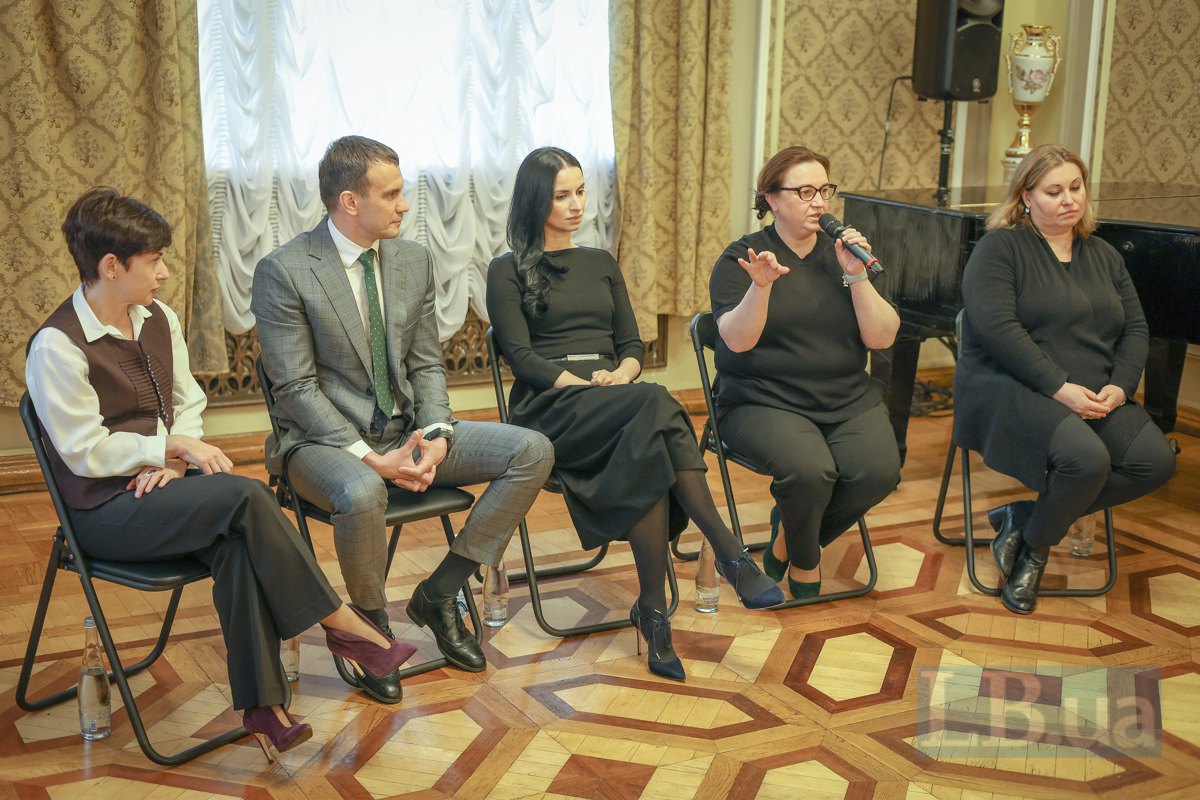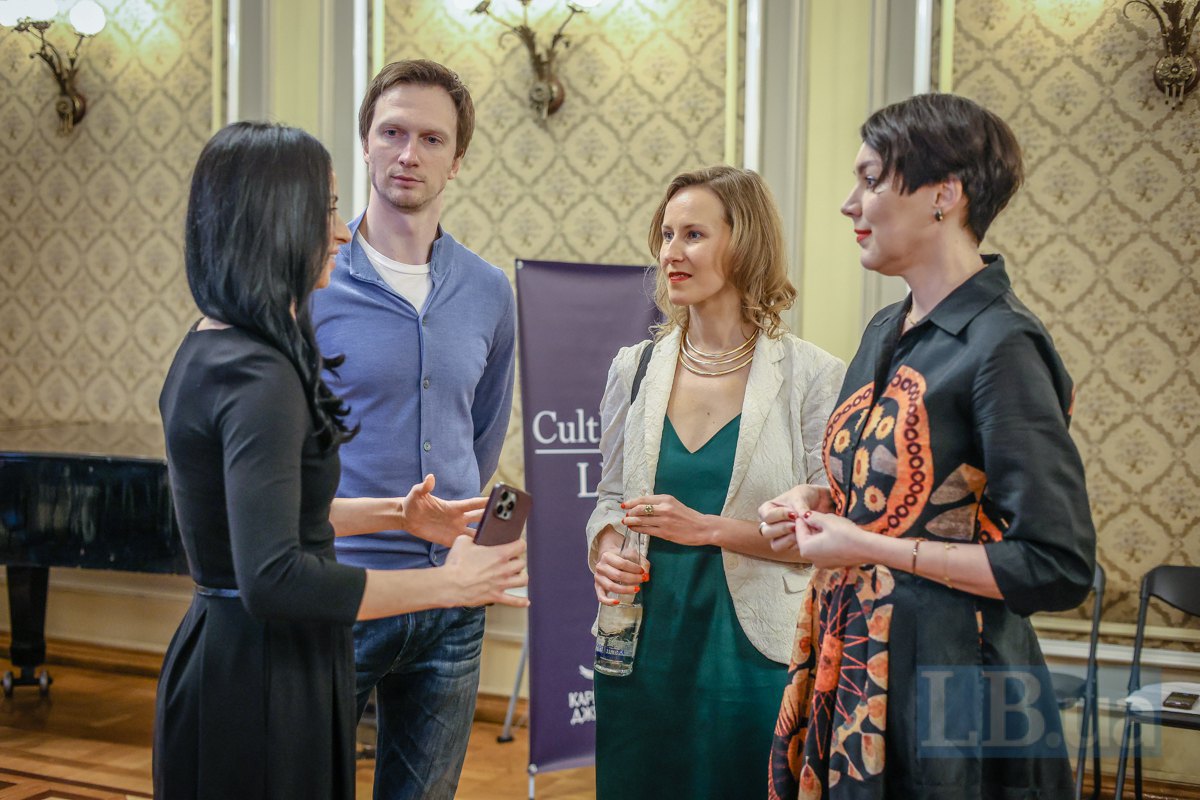
On 13 May, a presentation of the CultHub project was held with the participation of representatives of the relevant ministry, artists, and cultural managers. Participants were introduced to the project’s direction and shared their examples of cultural diplomacy abroad, as well as the challenges they face. The speakers at the presentation included Mykola Tochytskyy, Minister of Culture and Strategic Communications; Serhiy Ustenko, project partner; Olena Kovalska, Deputy Head of the Presidential Office; Natalya Matsak, prima ballerina of the Taras Shevchenko National Academic Opera and Ballet Theatre, People’s Artist of Ukraine; Yuliya Vahanova, Director General of the Khanenko Museum; and Lyudmyla Monastyrska, world opera star, People’s Artist of Ukraine and soloist of the National Opera. CultHub recorded the panel discussion in both text and video form.

The Minister of Culture also shared his views in an interview and column regarding the strategic importance and evolving role of cultural diplomacy for the country. According to him, it is becoming a genuine weapon, and the state must maintain constant focus on it.
The ist publishing house has released the book Decolonising Art. Beyond the Obvious, which resulted from a public programme of the same name organised by the Ukrainian Institute during the 59th Venice Biennale. We also published an important text – the introduction to this edition – written by the Ukrainian Institute’s Creative Director, Tetyana Filevska.
On the 80th anniversary of the end of the Second World War, a major diplomatic consensus was reached in Europe: a shared interpretation of the war’s legacy by several nations. The New York Times published an article authored by Ukraine’s Foreign Minister alongside his counterparts from Estonia, Latvia, Lithuania, Moldova, Poland and the Czech Republic. LB.ua reported on the article’s key messages and how the ministers succeeded in reaching a unified position.
Another landmark CultHub text was a short interview with philosopher and staunch supporter of Ukraine, Bernard-Henri Lévy, conducted on the eve of the premiere of his film at the Cannes Film Festival.
In May, we also shared with our readers the speech delivered by opera singers and Opera Aperta founders Roman Hryhoriv and Ilya Razumeyko during the presentation of The Classical:NEXT Innovation Award 2025. Their work exemplifies how a seemingly academic field, far from direct political influence, can significantly contribute to cultural diplomacy, refocusing attention on the war in Ukraine and the global boycott of Russian art.
We reported on major film festivals featuring Ukrainian cinema, as well as music and literary events. Among these was a notable moment when DakhaBrakha and film producer Volodymyr Yatsenko were awarded the French Ordre des Arts et des Lettres.
We continue to stay in contact with Ukrainian activists abroad who persistently advocate for cultural justice and challenge Russian cultural narratives. CultHub has covered related developments on this front as well.
We also systematically report on how children are living through the war years, highlighting cultural initiatives that aim to amplify young Ukrainians’ voices and support their resilience.
In early June, filmmaker and musician Serhiy Fomenko, known as the frontman of the band Mandry, concluded a ten-month international tour with his documentary People of Steel, which tells the story of the defenders of Mariupol. This unique work is not just a significant cultural product but, as its creator emphasises, a film of special purpose. It captures the full timeline of the events and the lived experience of the Azov Regiment. We recorded an exclusive interview with Serhiy, in which he discusses the global screenings, the responses of politicians, and cinema’s role in raising awareness about Ukrainian prisoners held in Russian captivity.
During the Docudays International Human Rights Film Festival, we explored how documentary cinema shapes Ukraine’s image globally, the stereotypes and questions faced by filmmakers, and how they serve as cultural diplomats. Our author recorded the comparative experience of Ukraine and Chile for CultHub.









